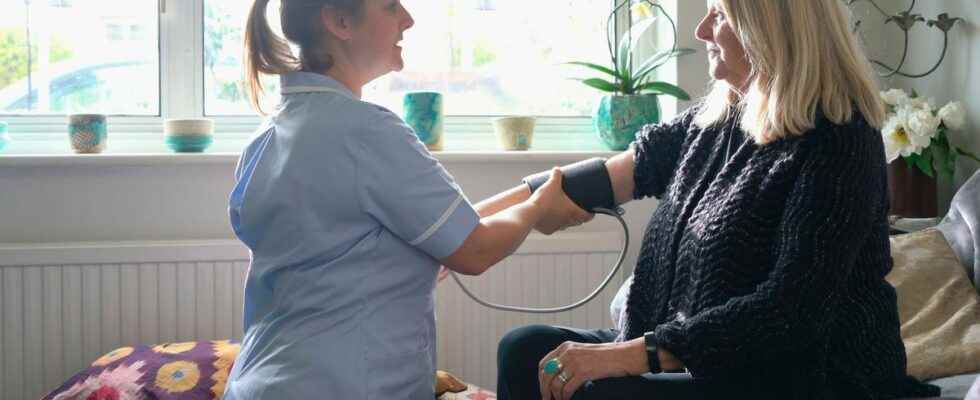Published on
Updated
Reading 3 mins.
On the night of Wednesday to Thursday, the National Assembly adopted the opening of “direct access” for patients to nurses in advanced practice (called IPA). A measure that does not convince general practitioners.
It was part of the arsenal of measures to fight against medical deserts and improve access to care on the territory. On the night of Wednesday to Thursday, the opening of “direct access” for patients to advanced practice nurses, the IPAs, without going through the doctor’s box, was voted on at first reading by the deputies with 62 votes against. 3.
IPAs, for whom and for what reasons?
The status of nurses in advanced practice, created via the Touraine law of 2016 and a decree in 2018 is intended in particular to reduce the workload of doctors by broadening the skills of certain nurses on targeted pathologies. Their deployment is still very limited, however, due in particular to an insufficient number of patients referred to them by general practitioners. The adopted article thus aims to enhance this status by now giving “the possibility for patients to go directly to these paramedics without going upstream through a doctor”but as part of a “coordinated exercise” with the latter.
According to the 2018 decree, advanced practice covers:
- Guidance, education, prevention or screening activities;
- Clinical evaluation and conclusion acts, technical acts and clinical and paraclinical monitoring acts;
- Prescriptions of health products not subject to medical prescription, prescriptions for additional examinations, renewals or adaptations of medical prescriptions.
General practitioners worried about this direct access
The measure aimed at ultimately simplifying access to care does not, however, convince general practitioners. The union of general practitioners MG France even denounces a text “dangerous and unsuitable”, warning against “a medicine where health professionals are interchangeable without any consideration of the quality of care”.
For Dr Fabien Quedeville, general practitioner consulted by Doctissimo, the question that must be asked above all is “is it a good or bad news for patients”.
“We can understand that in some places, we can have difficulty accessing care, and that for certain well-defined treatments, we can have recourse to other professionals, that does not shock me. Unfortunately, we already see that in the delegation of tasks (a smear from a midwife for example), there is no longer necessarily a link with the attending physician, the follow-up is not done. It therefore seems important to me to define the skills of each other, and not to take away skills again and again from generalists”.
The doctor also fears a disorientation of the patients, with this operation:
“I hope all the same that the population will not confuse everything, and forget that when you are faced with a health problem, it is your doctor that you must see before going to a nurse or a doctor. physio”.
A bad diagnosis made by the government?
For Dr Guillaume Barucq, general practitioner in Biarritz, the measure is also not the right one in the current context of access to care.
“The government made the wrong diagnosis. What we have been asking for for years is to be relieved of the administrative overload in order to better care for our patients. But this measure will relieve us of medical time, which we wanted to keep” he reproaches.
He also fears a negative impact in the long term on the health of the French:
“It’s even dangerous.” he recalls, “We are trained to Bac +10 to make diagnoses. We are told today that IPAs with Bac + 5 will offer the same level of service. As much as I am for total cooperation between health professionals for follow-up, giving them the power to diagnose and prescribe seems delicate to me. On a daily basis, we are able to detect a melanoma in a patient who has come for bronchitis, will they also be able to do it? ”
Under these conditions, the GP fears a deregulation that is harmful from every point of view, for doctors and patients alike: “At this rate, we will no doubt also have to provide after-sales service for diagnoses given by nurses”.
